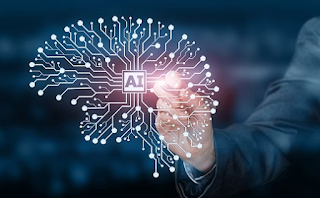Artificial Intelligence (AI) refers to the simulation of human intelligence in machines that are programmed to think and learn like humans. It is a broad field of study encompassing various subfields such as machine learning, natural language processing, computer vision, robotics, and expert systems. AI has gained significant attention and has become an integral part of our modern society, transforming numerous industries and sectors.
Machine Learning (ML) is a subset of AI that focuses on enabling machines to learn from data and improve their performance without explicit programming. ML algorithms use statistical techniques to analyze and interpret patterns in large datasets, allowing computers to make accurate predictions or decisions. Deep Learning, a subfield of ML, utilizes artificial neural networks inspired by the human brain to process vast amounts of data and achieve impressive results in tasks such as image and speech recognition.
Natural Language Processing (NLP) is another crucial aspect of AI that deals with the interaction between computers and human language. It involves tasks like language translation, sentiment analysis, speech recognition, and text generation. NLP enables machines to understand and interpret human language, leading to advancements in virtual assistants, chatbots, and language translation tools.
Computer Vision (CV) focuses on giving machines the ability to "see" and interpret visual information from images or videos. CV algorithms enable machines to recognize objects, detect faces, analyze scenes, and perform tasks like object tracking and image classification. Applications of computer vision include self-driving cars, surveillance systems, medical imaging, and augmented reality.
Robotics is a field that combines AI with mechanical engineering to design and develop intelligent machines capable of performing physical tasks autonomously. AI-powered robots can perceive their environment, make decisions, and interact with humans or objects. They are used in industries such as manufacturing, healthcare, agriculture, and exploration, as well as for tasks like assembly, pick-and-place, and surgical procedures.
Expert Systems are AI systems designed to mimic human expertise in specific domains. These systems employ knowledge bases and rule-based reasoning to solve complex problems and provide expert-level advice or recommendations. Expert systems find applications in areas like healthcare diagnosis, financial analysis, and customer support.
AI has made a significant impact on various industries. In healthcare, it has been used for disease diagnosis, drug discovery, and personalized medicine. In finance, AI algorithms aid in fraud detection, algorithmic trading, and risk assessment. AI is also utilized in customer service, where chatbots and virtual assistants provide efficient and personalized support. In transportation, self-driving cars and AI-powered traffic management systems aim to improve road safety and efficiency.
However, AI also presents challenges and ethical considerations. Concerns include job displacement due to automation, bias in algorithms, privacy issues, and the potential misuse of AI technologies. Efforts are being made to address these challenges through responsible AI practices, including transparency, fairness, and accountability.
In conclusion, AI is a rapidly evolving field that has revolutionized various aspects of our lives. Its applications are vast and diverse, ranging from healthcare and finance to transportation and customer service. As AI continues to advance, it is crucial to strike a balance between leveraging its benefits and addressing its societal and ethical implications.




0 Comments
You Have Any doubts, Pelese Let know mw